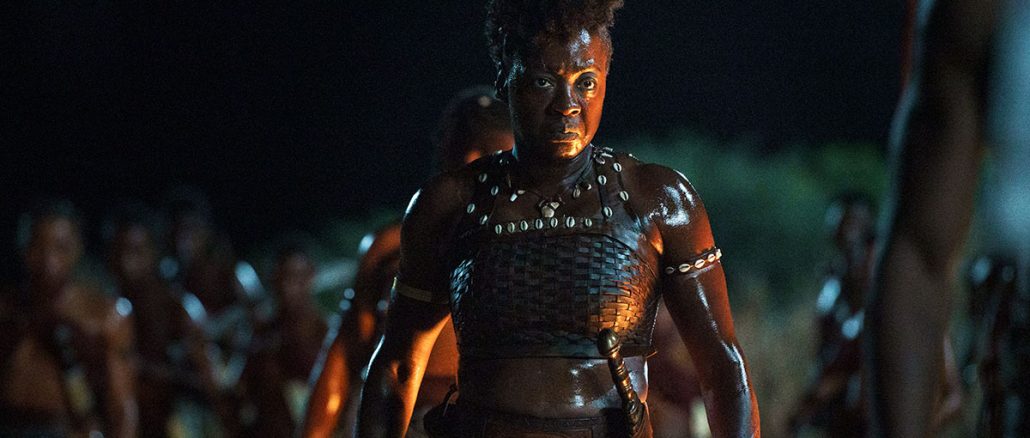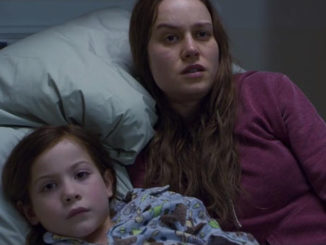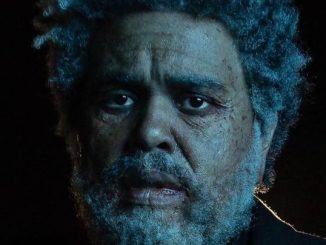
★★★½
Though its roots are historical, The Woman King shows all the standard elements of a modern blockbuster – intense action from talented actors, low-stakes character drama, crowd-pleasing triumphs, and a powerful score to match. Despite hitting these worn and weary beats however, The Woman King is a film that does set itself apart from the standard blockbuster, which director Gina Prince-Bythewood does by centering Black women in its narrative, an unfortunately uncommon choice in Hollywood. The Woman King is at its core a crowd-pleaser, and doesn’t shy away from this, but the film also provides an important platform for women all too often pushed to the sidelines in cinema, and does this by elevating an interesting account of history that most viewers will not have heard of before.
The film is set in the West African kingdom of Dahomey, located in modern-day Benin in the year 1820. The Kingdom is struggling to thrive, fighting for independence from both the Oyo empire, the Dahomey’s more powerful neighbours, and Portuguese colonizers intent on profiting from the local slave trade. The film primarily focuses on the Agojie, a historic unit of all-female warriors devoted to protecting Dahomey and its king from their enemies.
Despite basing the story in fact however, the film shapes a rather complex moment and culture in history into a rip-roaring piece of entertainment. More complex topics such as the African slave trade, while hinted at, are not given closer inspection as the action takes precedence. The Woman King limits itself somewhat in this lack of reflection on deeper topics, as the film asks you to overlook the fact that the Agojie are involved in slavery themselves, pretending that their form of slavery isn’t quite as bad as that of their enemies. That’s not really how it works though, is it? Slavery is slavery. Dana Stevens’s script is often on shaky ground, as the complete action-based focus results in a lack of reflection, only further hindered by occasional moments of complete cliché and lackluster villains. While still enjoyable, the film could have been more ambitious than the final product.
While lacking reflection on deeper topics, the film does succeed in delivering thrilling action throughout the runtime. Director Gina Prince-Bythewood has shown previous expertise in delivering entertaining big-budget action with insight and emotional intelligence, such as in her previous film The Old Guard. Similar to The Old Guard, the brutal action throughout is what gives The Woman King its backbone, and every one of the actresses involves genuinely convincing warriors. It’s when the Agojie are in action that The Woman King is at its absolute best, cleaving through brutal battle scenes with stunning choreography and impressive stunt work.
As well as action, the acting prowess in the cast is made clear from the start of The Woman King. Thuso Mbedu shines in her feature film debut as the Agojie’s newest recruit Nawi, delivering a believable, powerful performance as a shunned daughter turned warrior. Mbedu clearly put in the hours of training to deliver such committed physical performance and it shows, proving herself to be an actress to look out for in the future.
Viola Davis, who also co-produces, delivers possibly a career-best performance as Nanisca, army general of the Agojie and a force to be reckoned with in the battles throughout the film. Nanisca’s character is menacing, brutal and surprisingly emotional, and is a character only fully brought to life by the transformative work of Davis, who supplies both a fierce presence and a powerful frame (thanks to an unbelievable workout routine) to portray the self-sacrificing woman at the centre of the carnage in this film. While there are some uncomfortable flashback scenes involving Davis’ character, and a family plot twist clumsily added more than halfway through the film, these plot issues do not diminish Davis’ performance, as her acting shines far beyond the script.
Each warrior fights realistically for their build, with Davis and Lashana Lynch (as drill instructor Izogie) powering through with pure strength and athletic ability, while the newest recruit to the Agojie, Nawi uses speed and her opponents’ weight advantage against them. The scope of battle throughout is impressive given the film’s 50 million dollar budget, and the different fighting styles between members of the Agojie keeps the action fresh when the battles cut to one-on-one bouts. The complex character fighting styles add a visceral feeling to the combat throughout. Every slash of a blade, stab of a spear, or shot of a musket feels gruellingly real, with particular fight scenes even receiving winces and gasps from the audience.
While a lack of deeper reflection in heavy themes may be off-putting to some movie-goers, I have still recommended this movie to anyone I’ve told about it. The action speaks for itself – The Woman King sets out to entertain viewers with an action spectacle, and truly does deliver. Its entertainment value is also matched by its importance, as female strength and power reign supreme here. It’s nearly impossible not to be swayed by the power of the women on screen and their story. Just make sure to do your homework after viewing, a quick Google search will give the real (and just as interesting) feminist warriors of the Agojie some long overdue credit.
Andrew Walsh



